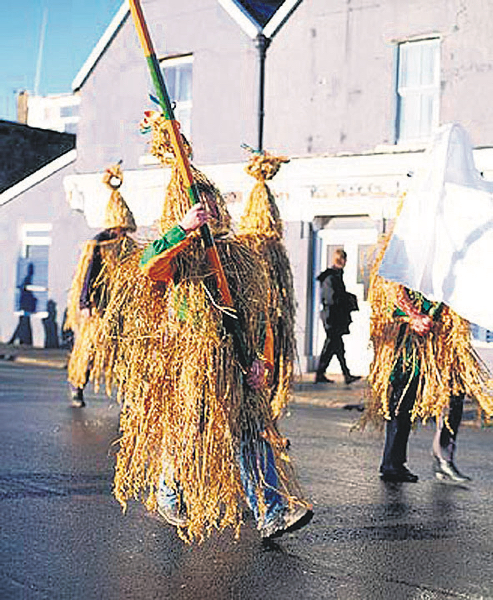HISTORY: Remembering Wren Day
Dublin People 11 Dec 2015
WREN Day is an ancient tradition in Ireland, believed to date back to pre-Christian times. Celebrated on December 26, the tradition involves the hunting of Ireland’s smallest bird, the wren or ‘wran’.
The celebration of Wren Day was once so popular and widespread, that it was adopted by the Catholic Church and changed to take on a more religious significance.
So what are the origins of the wren hunt? Some believe that the tradition began as a winter solstice celebration. The solstice takes place each December 21 and was celebrated as the Gaelic New Year.
In Irish mythology the wren is considered the ‘King of the Birds’ and is also associated with the old year.
It was said that capturing the bird alive would herald in a new and prosperous year.
As the king of the birds the wren is believed to have occupied a prominent position in the druidic pagan religion, once dominant in Ireland.
That there are similar traditions involving the wren at New Year in other Gaelic and Celtic countries might suggest that this is indeed the origin of the strange tradition.
Others however, believe the custom has darker origins, associating the tradition with the story of the fairy woman Clíona.
One of the Daoine Sí, legend tells us that Clíona was a Gaelic goddess of Munster and presided over the fairy other world.
Possessing great supernatural abilities, Clíona was said to be a powerful seductress, often using her siren like voice to lure young men to the ocean, where she would drown them.
One man is said to have learned of her magic and decided to kill her. Before he could strike the fatal blow, however, Clíona used her power to transform herself into a Wren and so escaped.
The man, outraged at her escape, is said to have cursed her, condemning her to turn into a Wren on the same day every year, making it easier to catch her. As Clíona was associated with the ocean a belief arose that said a feather from a Wren captured at the end of December would bring luck, particularly at sea.
It was said, particularly in coastal communities, that no sailor or fisherman who possessed a wren feather would be shipwrecked.
A belief in the luck of December Wren feathers survives in certain parts of Ireland till this day.
With the coming of Christianity, the reverence of the wren and other pagan symbols could no longer be tolerated. The new religion was determined to wipe out the people’s old beliefs.
Aware of the popularity of the custom, however, the Church adopted the wren hunt, changing its meaning to take on religious significance.
It was said that the wren was the traitor that had betrayed St Stephen to his pursuers, leading to his execution.
Considered the first Christian Martyr, the feast of St Stephen is celebrated on December 26, which became the day of the wren hunt.
Unlike earlier traditions, the wren was now hunted, captured and killed by ‘Wren Boys’ often dressed in disguises made of straw.
The Wren boys then tied the bird to a pole and paraded it through the streets, collecting money to hold a dance that evening.
Despite the attempts of the church to blacken the king of the birds, many people still wanted a wren feather for luck.
Today, although no longer widespread, Wren Day is still celebrated in parts of the country. A real bird is no longer hunted. Instead an imitation is used.
The elaborate straw costumes, however, are still a regular feature of the celebration and continue to delight old and young alike.











